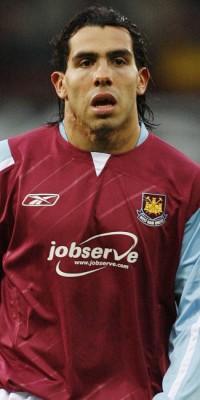|
FA Failings Condemn Blades to the Knife
Last Updated : 22-May-2007 byIn this case though, it is not the story of a couple of cheeky cockney barrowboys. West Ham are supposed to be a respectably run football club, which will be hit hard by the authorities should they transgress the laws and regulations to which it is subject. Unfortunately, having acted in a manner befitting Del Trotter, they have found themselves given nothing more than the lightest of prods.
First and foremost, it is a shame that a player of the quality of Carlos Tevez - and for that matter Javier Mascherano - should find himself embroiled in such a base affair. For Tevez is a player of rare class; the type of player the English game should be doing all it can to welcome and to retain, partly in the hope that it will persuade English coaches of the benefits of forwards with flair, movement and instinct.
But, that cannot be allowed to cloud the fact that the judgement which allowed West Ham to shuffle off with an ultimately inconsequential fine was a diabolical example of legal reasoning. And nor should it disguise the fact that, the judgement having been passed down without a points deduction, West Ham were handed a second get-out of jail card by the Premier League.
The logic employed by the Commission was flawed in just about every respect. It suggested a points penalty would be unfair on the supporters, as if that should have anything to do with the outcome. It was apparently too late in the season to fairly deduct points from West Ham - ignoring the obvious fact that the inverse was also true and that not to do so would in turn be unfair to their relegation rivals.
It placed great store by the utterly irrelevant fact that West Ham had changed ownership, ignoring the fact that it was West Ham, as an independent legal entity, who were in the dock, and not their owners and shareholders. And despite the fact that they essentially concluded that a continuing employee of the club, Scott Duxbury, had misled them in his testimony, having been at the heart of the whole affair.
There are so many other holes which could be picked - did West Ham really volunteer the contracts to the Premier League freely when they forwarded them in January, given that they had just been informed that third party contracts were about to be investigated, for example? - but the unfortunate truth is that, upon the question of the judgement itself, Sheffield United and the so-called 'gang of four' are doomed to fail, because the self-serving rules of the Premier League do not provide them with any recourse.
But West Ham and the FA Premier League should still be brought to account once again - because Carlos Tevez really should not have been allowed to play in the last two games of the season. The judgement, in one of its more lucid moments, states quite clearly that in addition to the fine, it orders the registration of the player be revoked by the Premier League.
It does not say that should be revoked unless the contractual basis for his registration is corrected. It simply says that that his registration should be revoked: it is part of the punishment.
So how then was he eligible to play those last 2 games? Either the Premier League blithely ignored that aspect of the judgement, or it cancelled the registration before allowing it to be re-registered. And if it was the latter, then what of the rule which prevents the registration of players outside the transfer window? There might be an exception of free agents who have not represented a club since the last transfer window closed, but any such loopholes were not designed with circumstances such as these in mind.
At very best, the Premier League has allowed a cynical interpretation of those rules - and, indeed, the judgement - to triumph, and Sheffield United are rightly aggrieved. Stripped of Tevez, and the points his goals provided, West Ham would have been relegated.
|
But the underlying cause of this affair should not be forgotten: it has exposed the flaw which lies at the heart of a competition which describes itself as a joint venture between the member clubs, beholden to no-one and a sort of playground democracy in which there will always be those who rank highest and lowest amongst theoretical equals.
And the greatest absurdity of all is that this league, this structure, is one which was blessed by the governing body of the game back in 1992 when it backed the self-interested breakaway in order to face down the perceived threat to its superiority posed by the Football League.
You reap what you sow: on the weekend that Wembley's grotesque monument to the age of plenty hosted its first major fixture, the FA can reflect that its authority has indeed been usurped - but not by the Football League, but clubs like those who contested Saturday's final, the big clubs who have, as a result of the Premier League, grown too big to be contained by their governing body.
The West Ham affair is simply one more farce to have unfolded whilst the FA has done no more than stand lamely on the sidelines, unable to bring to bear the influence one might expect of the regulator and overseer of the game in this country. We've had Manchester United opting out of the FA cup, Wimbledon upping sticks to Milton Keynes, a succession of club owners unfit for the purpose and the collapse of the grass roots game whilst the wealthiest fill their boots. All things which can be blamed on someone else; all things which have indeed been blamed on someone else.
But however much the FA might try to deflect responsibility, the fact is that it is - or should be, for that is the point - ultimately responsible. If it is not, then it is because it has neglected its duties whilst chasing the glories of association with the glamour of the England team and the Premier League itself, to the detriment of running the game as a whole.
This is a multi-million pound industry these days. Yet for all the savvy of the clubs themselves, it is not administered as such. We need a proper, independent regulator responsible for the whole of the game in this country, and we do not have one. It is supposed to be the role of the FA - but that is an organisation which it has become a lightweight, insubstantial and marginalised failure.


